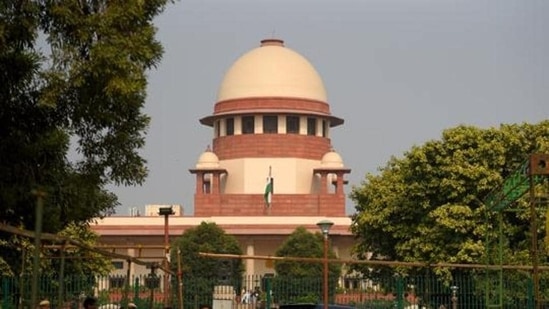SC stays Manipur HC order permitting seven Rohingya to seek refugee status
A bench of justices AM Khanwilkar and AS Oka issued notice to Haksar and stayed the May 3, 2021 HC order “provided the same has not been acted upon by the concerned authority so far”.
The Supreme Court on Monday stayed a 2021 order of the Manipur high court that allowed seven members of the Rohingya community — including four journalists — a “safe passage” to Delhi to seek refugee status from the United Nations High Commission for Refugees (UNHCR).

The order came on a petition filed by the Centre, which said that the seven persons were “untraceable”, and responsibility for their going missing ought to be fixed on human rights activist and lawyer Nandita Haksar, who moved a petition on their behalf before the high court and took personal responsibility that their presence would be marked at Parliament Street police station on their arrival in the Capital.
Taking serious view of the matter, a bench of justices AM Khanwilkar and AS Oka issued notice to Haksar and stayed the May 3, 2021 HC order “provided the same has not been acted upon by the concerned authority so far”. Posting the matter to May 6, the bench said, “We are informed that the persons concerned are not traceable. In that case, the writ petitioner (Haksar) has to take responsibility of producing them before the authorities concerned.”
Solicitor general (SG) Tushar Mehta, appearing for the Centre, told the court that the issue of Rohingya refugees was already pending consideration of the top court in the form of a public interest litigation (PIL) which was last heard in April last year when a group of Rohingya refugees were to be deported from Jammu. Quoting that order of April 8, 2021, Mehta said, “It is true that the rights guaranteed under Articles 14 and 21 are available to all persons who may or may not be citizens. But the right not to be deported, is ancillary and concomitant to the right to reside or settle in any part of the territory of India guaranteed under Article 19(1)(e).”
Mehta said that the high court judgment proceeded by reading the principle of non-refoulement (protection from forcible return) under the UN Refugee Convention, 1951 as part of Article 21 of the Indian Constitution, without realising that India is not a signatory to the 1951 Convention.
The high court, in its judgment said, “This court finds it just and proper to extend protection under Article 21 of the Constitution to these seven Myanmarese persons and grant them safe passage to New Delhi to enable them to avail suitable protection from UNHCR.”
Of the seven, three were journalists, while the other four were the spouse of one of the journalists and their three minor children. They fled Myanmar fearing persecution and physical danger following the military coup and the subsequent violence. The high court recorded that they entered India and took shelter at Moreh in Tengnoupal district, Manipur, and sought the help of Haksar fearing that Indian authorities would deport them due to lack of valid documentation.
“What fundamental rights will apply for a person who comes in and gets out of the country is essentially an executive function. Here these persons who are enjoying high court’s protection are now untraceable. Since the undertaking was given by the petitioner, she should tell us where they are now,” Mehta told the court.
While the high court order was passed almost a year ago, the Centre apprehended orders may be passed by other high courts in favour of similarly placed refugees.






